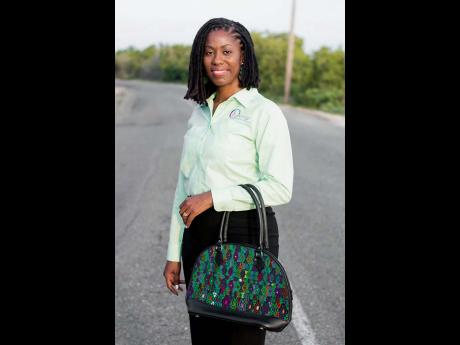Earth Today | Development decisions undermining resilience in vulnerable countries
IN THE race to stave off the ill effects of climate change and enhance their credibility in international negotiations, developing countries, including those of the Caribbean, need to look internally at their own operations, as part of efforts to build resilience.
"Governments need to understand that they have a responsibility to change some of the domestic policies and actions that are worsening or will worsen the impacts of climate change," said Dr James Fletcher, former sustainable development minister for Saint Lucia.
"How can we lobby at the international level for action to stop global warming, which is causing sea level rise, yet continue to approve multi-million-dollar tourism investments in the very places that we know will be inundated by sea water and storm surge in the next decade or so? How can we continue to allow infrastructure developments that destroy or damage mangroves, when we know the important role mangroves play in protecting shorelines from storm surges and floods, maintaining water clarity and trapping sediments?" he added.
"How can we continue to operate without strongly enforced land use policies that protect vulnerable ecosystems, preserve the integrity of watersheds in countries that are already operating under water-stressed conditions and discourage or prevent new developments in high-risk areas?" Fletcher emphasised.
Climate impact
Such countries, he said, must, of necessity, make changes if they are to survive the onslaught of climate impacts, including extreme weather events, the likes of which devastated sections of the Caribbean during the Hurricane Season last year.
"If we are serious about safeguarding lives and livelihoods from the impacts of climate change, we have to understand that this will not happen solely through accessing more climate finance from the international community. We have to shoulder some of the responsibility," he said.
Indi Mclymont Lafayette, development communications specialist and one who has herself been on the front line of climate change negotiations as a journalist and civil society advocate, agreed.
"Jamaica tends to be one of the leading countries on the Caribbean when it comes to climate action. That is good, but we have to keep ensuring that our national policies align with international targets. So we have to keep national pledges to reduce emissions just as much as countries, such as the US," she said.
The Intergovernmental Panel on Climate Change (IPCC) special report on climate change of 1.5 degrees Celsius of global warming paints the picture of what is at stake if efforts to halt the warming of the planet, which fuels climate change are not maximised.
"Adaptation is expected to be more challenging for ecosystems, food and health systems at two degrees Celsius of global warming than for 1.5 degrees Celsius. Some vulnerable regions, including small islands and least developed countries, are projected to experience high multiple interrelated climate risks even at global warming of 1.5 degrees Celsius," reads the special report, which is based on the assessment of the available scientific, technical and socio-economic literature relevant to global warming of 1.5 degrees Celsius.
"Limits to adaptive capacity exist at 1.5 degrees Celsius of global warming, become more pronounced at higher levels of warming and vary by sector, with site-specific implications for vulnerable regions, ecosystems and human health," added the report, which is to inform discussions at the climate talks set for Poland next month.


